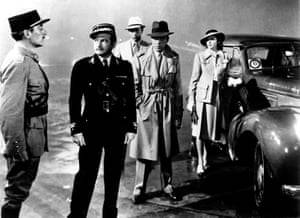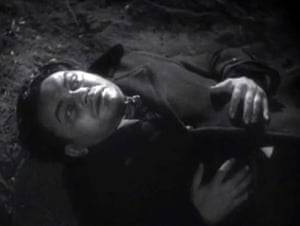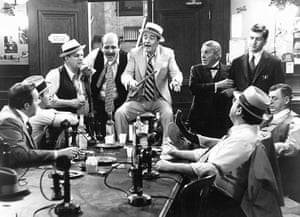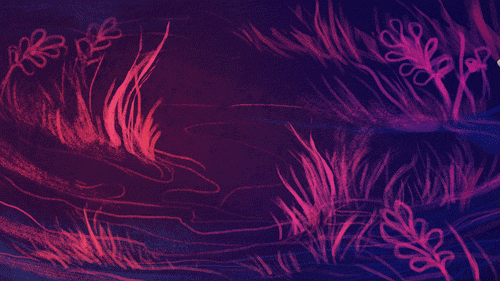#Peter Fritz Walter Narrator
Text
Public Domain Edition
Public Domain Edition Gateway
I am preparing a Public Domain Edition of all my works, literary, art, music, and photography. The Gateway Domain for this huge endeavor is here:
http://peterfritzwalter.wordpress.com
All sites can be accessed from this summary page:
https://peterfritzwalter.wordpress.com/browse-sites/

View On WordPress
#All Works by Peter Fritz Walter#Artwork#Audiobooks#Books#Essays#Music#Peter Fritz Walter Author#Peter Fritz Walter Content Provider#Peter Fritz Walter Designer#Peter Fritz Walter Narrator#Photography#Public Domain Edition
6 notes
·
View notes
Photo










Cine - best last lines - in pictures
The 10 best last lines - in pictures
Philip French - Sat 28 Jan 2012 19.05 EST
Casablanca
(Michael Curtiz, 1942) “Louis, I think this is the beginning of a beautiful friendship.” Said by liberal nightclub owner Rick Blaine (Humphrey Bogart) to collaborationist police chief (Claude Rains) as they quit vanquished Morocco to join the Free French army in West Africa. In a script as quotable as Hamlet, this witty, sophisticated line captures the pervasive tone of the movie’s patriotic response to the conflicting wartime demands of love and duty. The film lists three screenwriters, but this scene was written and directed by its producer Hal B Wallis on an empty, fog-filled set
Gone With the Wind
(Victor Fleming, 1939) “I’ll go home and I’ll think of some way to get him back. After all, tomorrow is another day!” This is the optimistic reaction of the determined southern belle Scarlett O’Hara (Vivien Leigh) when a terminally exasperated Rhett Butler (Clark Gable) walks out on her with the parting shot “Frankly, my dear, I don’t give a damn”. Virtually the same as the last words of Margaret Mitchell’s 1936 bestseller, but the novel doesn’t have a glorious Technicolor sunset, William Cameron Menzies as production designer, or Max Steiner’s “Tara’s Theme”
10 best last lines: Gone With the Wind
Some Like It Hot
(Billy Wilder, 1959) “Well, nobody’s perfect!” Spoken by the cheerful, much married millionaire Osgood Fielding III (Joe E Brown) as he steers his motorboat away from a Miami pier. It’s his response when the new love of his life, Daphne (Jack Lemmon in drag), who’s been playing in an all-girls band, doffs her wig and says: “I’m a man!” Wilder was the master of final pay-offs, and the last lines of, for example, Sunset Boulevard (“All right Mr De Mille, I’m ready for my close-up”) and The Apartment (“Shut up and deal”), are classics
King Kong
(Ernest Schoedsack, 1933) “Oh no, it wasn’t the airplanes. It was beauty killed the beast.” This was the epitaph on the giant ape Kong, shot dead by fighter planes after carrying Fay Wray to the top of the Empire State Building. It’s spoken by Carl Denham (Robert Armstrong), the ruthless film-maker who captured Kong on Skull Island. The 1976 remake, in which Kong is harassed by helicopters atop the World Trade Centre, has no such ending. Peter Jackson’s 2005 version sticks closer to the original, is set during the Depression and features Denham’s last line
The Front Page
(Lewis Milestone, 1931) “The son of a bitch stole my watch!” This is the final line of the great 1928 newspaper comedy by Ben Hecht and Charles MacArthur, delivered by the cynical yellow-press editor Walter Burns over the telephone as a message to the police, his ultimate dirty trick to prevent ace reporter Hildy Johnson escaping from his services. In the 1931 film version, Burns (Adolphe Menjou) “accidentally” touches a typewriter key on the word “bitch” to placate the censors. In Billy Wilder’s 1974 film with Walter Matthau as Burns, the line is restored to its full glory
Little Caesar
(Mervyn LeRoy, 1931) “Mother of mercy! Is this the end of Rico?” These are the last words of the dying gangster in the Warner Bros film that made a star of Edward G Robinson. In his classic 1948 essay “The Gangster as Tragic Hero”, Robert Warshow writes of Rico speaking of himself in the third person “because what has been brought low is not the undifferentiated man, but the individual with a name, the gangster, the success”. And he mentions that “TS Eliot has pointed out that a number of Shakespeare’s tragic heroes have this trick of looking at themselves dramatically”
The Usual Suspects
(Bryan Singer, 1995) “The greatest trick the devil ever pulled was convincing the world he didn’t exist. And like that – poof – he’s gone!” Christopher McQuarrie, who won an Oscar for his original screenplay of this brilliantly plotted thriller, gave the line to the film’s singularly unreliable narrator, Verbal Kint (Oscar for Kevin Spacey), while explaining the demonic super criminal Keyser Söze to a police interrogator. It’s repeated as a devastating flashback at the end. The title comes from Captain Renault’s cynical refrain, “Round up the usual suspects,” in Casablanca
Dr Strangelove
(Stanley Kubrick, 1964) “Mein Führer, I can walk!” Kubrick and his co-screenwriter Terry Southern created Dr Strangelove, the German-born wheelchair-bound US presidential adviser, a combination of Fritz Lang’s mad scientist Rotwang from Metropolis, Herman Kahn, author of On Thermonuclear War, Henry Kissinger, and Ian Fleming’s Dr No. But it was Peter Sellers who, in addition to playing two other roles, put the character of Strangelove together. He improvised much of his dialogue, including this comically shocking final line that suggests an ultimate triumph of the will
Chinatown
(Roman Polanski, 1974) “Forget it, Jake, it’s Chinatown.” One of the most lapidary of concluding sentences, this consoling remark directed by a professional associate at bereft Los Angeles private eye JJ Gittes (Jack Nicholson), is a key line in the movie that revived the film noir and launched neo-noir. It derives from screenwriter Robert Towne’s research into pre-war southern California and from Gittes’s previous experiences as a policeman in the Chinese ghetto. Chinatown is a metaphor for the indecipherability of 1930s Los Angeles and its labyrinthine corruption
The Maltese Falcon
(John Huston, 1941) “The stuff that dreams are made of.” It’s the answer private detective Sam Spade (Humphrey Bogart) provides when a San Francisco cop (Ward Bond) holds up the fake version of the priceless Maltese Falcon and asks: “It’s heavy, what is it?” Hammett’s novel ends less dramatically. This parting line in his directorial debut, a slight misquotation of Prospero’s final speech in The Tempest, is a comment anticipating the elusive grails that lie beyond the reach of so many Huston characters – eg in The Treasure of the Sierra Madre and The Man Who Would Be King
https://www.theguardian.com/culture/gallery/2012/jan/29/ten-best-last-lines-in-pictures
1 note
·
View note
Link
Just finished listening to The Lunar Bull: About the Spiritual Significance of Matriarchy: Scholarly Articles, Volume 9 (Unabridged) by Peter Fritz Walter, narrated by Peter Fritz Walter on my Audible app. Try Audible and get it free!

0 notes
Text
Inner Child Art Guide
Inner Child Art Guide
The ‘Inner Child Art Guide’ within the Series ‘The Journey to Self’ is a systematic roadmap to create art without any artistic technique, solely by trusting the awakened and healed inner child to express his or her intrinsic talent.
The audio version of the essay comes with an additional bonus for the preparation of your first child-art session: a complete 13 min. long relaxation session, with…

View On WordPress
#Art without Technique#Audiobook#Inner Child Art#Peter Fritz Walter Author#Peter Fritz Walter Narrator#Spontaneous Art
4 notes
·
View notes
Text
Daoism and Systems Theory
Daoism and Systems Theory
‘Daoism and Systems Theory’ is a recent article of mine devoted to a first analysis of the precepts, the lifestyle and the ideas of what is today called Ancient Scholarly Daoism.
In 17 short paragraphs I try to catch the essence of each theme, and those themes are varied, from education to moral philosophy over daily practice of Qigong and other health-fostering exercises that involve the…

View On WordPress
2 notes
·
View notes
Text
Joseph Murphy and the Power of Your Subconscious Mind
Joseph Murphy and the Power of Your Subconscious Mind
‘Joseph Murphy and the Power of Your Subconscious Mind’ (Great Minds Series, Vol. 6) is a study that features one of the greatest self-help authors of our time.
Joseph Murphy (1898-1981), born in Ireland, was a naturalized American author and New Thought minister, ordained in Divine Science and Religious Science. He was born into a strictly Catholic school master family and was accepted as a…

View On WordPress
#Audiobook#Joseph Murphy#New Thought Author#Peter Fritz Walter Author#Peter Fritz Walter Narrator#Scientific Prayer#Subconscious Mind
2 notes
·
View notes
Text
Edward de Bono and the Mechanism of Mind
Edward de Bono and the Mechanism of Mind
‘Edward de Bono and the Mechanism of Mind’ (Great Minds Series, Vol. 5) is a study that features one of the greatest think tanks of our time.
Born in 1933 in Malta, he has been a training expert, corporate consultant, writer and philosopher of world renown for decades. He has been a corporate consultant for DuPont, Exxon, Shell, Ford, IBM, British Airways, Ciba-Geigy, Citibank—to name a…

View On WordPress
#Audiobook#Corporate Training#Edward de Bono#Peter Fritz Walter Author#Peter Fritz Walter Narrator#The Mechanism of Mind
2 notes
·
View notes
Text
5 Essays on Religion
5 Essays on Religion
‘5 Essays on Religion’ are expressing my personal synthesis of various cognitive mishaps in the common understanding of religion. First off, I consider it fundamental that religion be independent of any organized worship, a private matter, a matter of personal autonomy also. I call this position ‘Spiritual Self-Sufficiency,’ a term I have come across in the teaching of Western Daoism.
Second, I…

View On WordPress
#Matrix Intelligence#Peter Fritz Walter Author#Peter Fritz Walter Narrator#Spiritual Sufficiency#The Loving Matrix#The Non-Principled Mind#The Vital Principle
2 notes
·
View notes
Text
The Matriarchal Science
‘The Matriarchal Science’ within the Series ‘The Shamanic Quest’ is a study that outlines the present debate about the dichotomy of matriarchy-patriarchy. On the level of the collective unconscious, the study demonstrates that the historical transition from matriarchy to patriarchy has not taken place in so far as the matriarchal symbols and cosmic energy holders, such as the Lunar Bull, and the…

View On WordPress
#Audiobook#Goddess#Historical Turn#Matriarchy#Murder of the Goddess#Patriarchy#Peter Fritz Walter Author#Peter Fritz Walter Narrator#The Matriarchal Science#The Murder Culture
1 note
·
View note
Text
Inner Child Essays
‘Inner Child Essays’ within the Series ‘The Journey to Self’ are essays that provide unusual or uncanny insights and perspectives on the inner child, and how the recovered and healed inner child is different from the wounded or mute inner child, and how to use its creative energy constructively and for the purpose of our spiritual development.
These are the 6 Essays in this volume:
1) Feel…

View On WordPress
#Audiobook#Child Play#Inner Child#Inner Child Essays#Inner Child Recovered#Peter Fritz Walter Author#Peter Fritz Walter Narrator#The Invisible Artist#Violence Begins Inside
1 note
·
View note
Text
By Yourself About Yourself
By Yourself About Yourself
‘By Yourself About Yourself’ within the Series ‘The Journey to Self’ is a selfhelp essay that is strongly affirmative about the fact that we all carry our inner guru, and that therefore all outward gurus we encounter in life are catalyzers of this inner guide, which is actually our higher self.
The essay emphasizes that living your Dharma, your ‘enchanted life,’ means for you to gain…

View On WordPress
#Audiobook#Higher Self#Inner Guru#Peter Fritz Walter Author#Peter Fritz Walter Narrator#Spiritual Guidance
1 note
·
View note
Text
The Roots of Violence
The Roots of Violence
‘The Roots of Violence: Why Humans Are Not By Nature Violent’ (Essays on Law, Policy and Psychiatry, Vol. 10, 2018) is an analytical and policy study that presents abundant evidence that human beings are not by nature violent and that violence therefore is a conditioned response. The scientific disciplines examined are anthropology, biology, neurology, pedagogy, psychoanalysis, and…

View On WordPress
#Audiobook#Causes of Violence#Conditioned Response#Humans are not violent by nature#Peter Fritz Walter Author#Peter Fritz Walter Narrator#Roots of Violence#Violence in Society
1 note
·
View note
Text
Tai Chi Quotes
‘Tai Chi Quotes’ is a quotes collection that I have made from ‘Tai Chi: for a Healthy Body, Mind and Spirit, by Hua-Ching Ni & Mao Shing Ni
Los Angeles, Tao of Wellness Press, 2011. Here are the topics:
—Tai Chi and Spirituality
—Tai Chi and Energy Refinement
—Tai Chi and Internal Harmony
—Tai Chi and Qigong
—Tai Chi and Dao
—Learning Tai Chi
—Tai Chi and Self-Healing
—Tai Chi and Energy…

View On WordPress
1 note
·
View note
Text
Coaching Your Inner Child
Coaching Your Inner Child
‘Walter’s Inner Child Coaching: A Guide For Your Inner Journey (Series Training and Consulting, Vol, 3)’ is a systematic road map for the whole of the procedure of Inner Child Recovery, Healing and Artwork. It is a selfhelp guide and provides many examples and sample dialogues.
Exclusiveness in fostering only the Inner Child is unwise and not recommended since the other main actors of our inner…

View On WordPress
#Audiobook#Healing Workbook#Inner Child#Inner Child Coaching#Inner Child Essays#Inner Child FAQ#Inner Child Recovery and Healing#Peter Fritz Walter Author#Peter Fritz Walter Narrator
1 note
·
View note
Text
The Energy Nature of Human Emotions and Sexual Attraction
The Energy Nature of Human Emotions and Sexual Attraction
‘The Energy Nature of Human Emotions and Sexual Attraction: A Systemic Analysis of Emotional Identity in the Process of the Human Sexual Response’ is a concise study on how human emotions impact upon sexual attraction, a subject never tackled by modern sexology nor by psychoanalysis.
I am advancing a theory of emotional awareness building quite in opposition to current sexology in that I…

View On WordPress
#Audiobook#Emotions#Energy#Energy Nature#Peter Fritz Walter Author#Peter Fritz Walter Narrator#Sexuality
1 note
·
View note
Text
The Lunar Bull
‘The Lunar Bull: About the Spiritual Significance of Matriarchy’ (Scholarly Articles, Vol. 9), 2019 Apple Books Edition, is a study that outlines the present debate about the dichotomy of matriarchy-patriarchy.
On the level of the collective unconscious, the study demonstrates, the historical transition from matriarchy to patriarchy has not taken place. In the contrary, it appears that the…

View On WordPress
#Goddess#Joseph Campbell#Lunar Bull#Matriarchy#Peter Fritz Walter Author#Peter Fritz Walter Narrator
0 notes